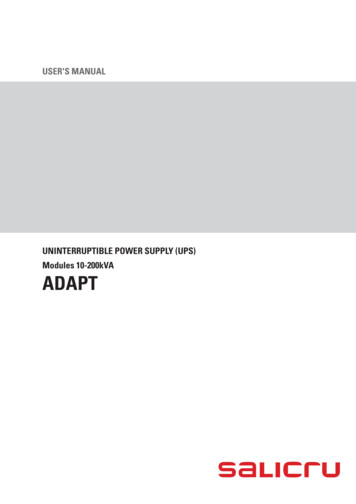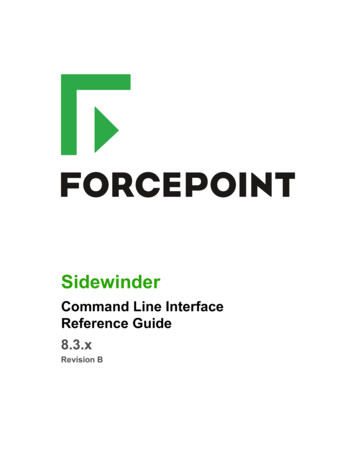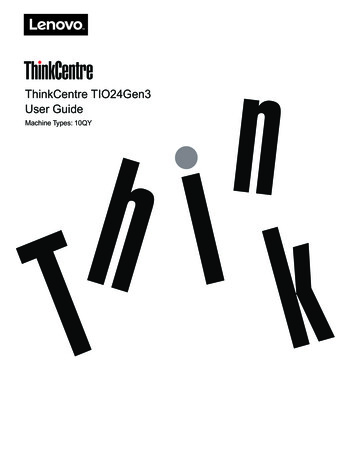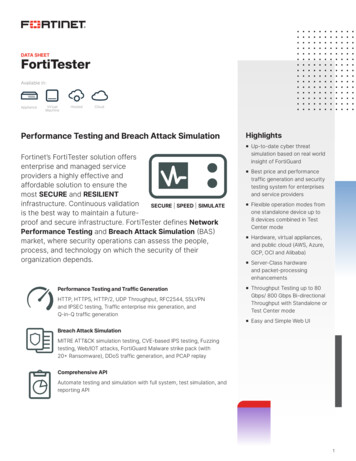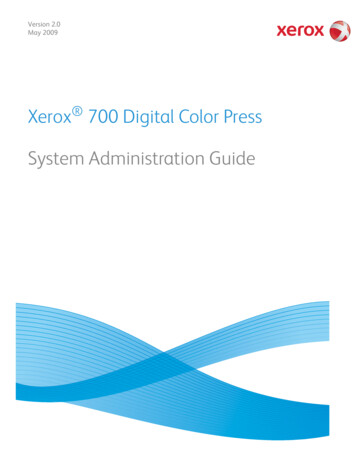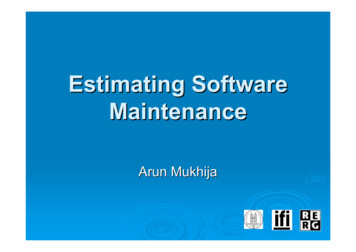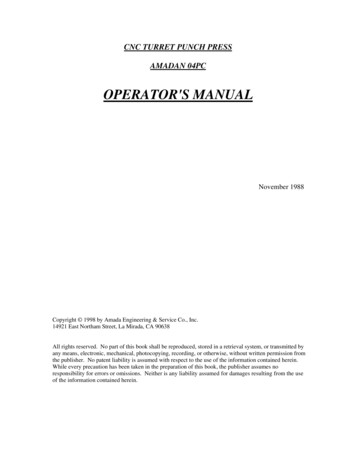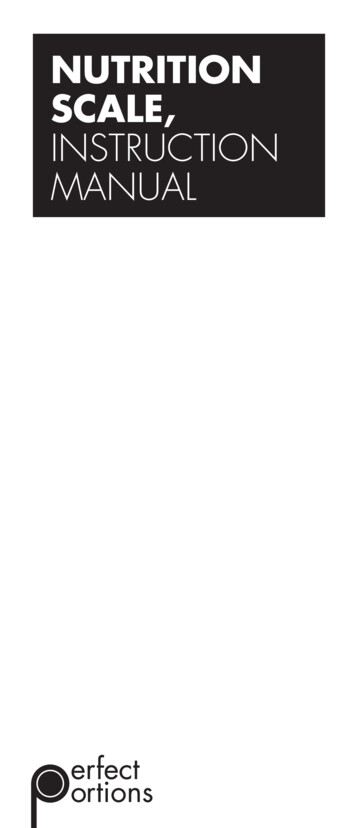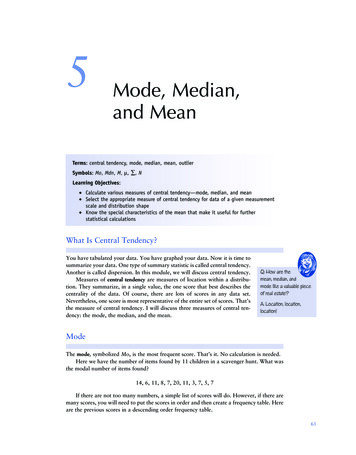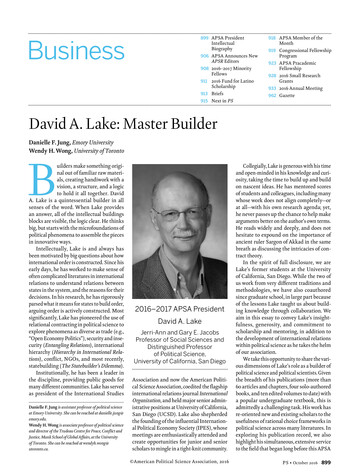
Transcription
Business899 APSA PresidentIntellectualBiography906 APSA Announces NewAPSR Editors908 2016–2017 MinorityFellows9112016 Fund for LatinoScholarship913 Briefs915 Next in PS918 APSA Member of theMonth919 Congressional FellowshipProgram923 APSA PracademicFellowship928 2016 Small ResearchGrants933 2016 Annual Meeting962 GazetteDavid A. Lake: Master BuilderDanielle F. Jung, Emory UniversityWendy H. Wong, University of TorontoBuilders make something original out of familiar raw materials, creating handiwork with avision, a structure, and a logicto hold it all together. DavidA. Lake is a quintessential builder in allsenses of the word. When Lake providesan answer, all of the intellectual buildingsblocks are visible, the logic clear. He thinksbig, but starts with the microfoundations ofpolitical phenomena to assemble the piecesin innovative ways.Intellectually, Lake is and always hasbeen motivated by big questions about howinternational order is constructed. Since hisearly days, he has worked to make sense ofoften complicated literatures in internationalrelations to understand relations betweenstates in the system, and the reasons for theirdecisions. In his research, he has rigorouslyparsed what it means for states to build order,arguing order is actively constructed. Mostsignificantly, Lake has pioneered the use ofrelational contracting in political science toexplore phenomena as diverse as trade (e.g.,“Open Economy Politics”), security and insecurity (Entangling Relations), internationalhierarchy (Hierarchy in International Relations), conflict, NGOs, and most recently,statebuilding (The Statebuilder’s Dilemma).Institutionally, he has been a leader inthe discipline, providing public goods formany different communities. Lake has servedas president of the International StudiesDanielle F. Jung is assistant professor of political scienceat Emory University. She can be reached at danielle.jung@emory.edu.Wendy H. Wong is associate professor of political scienceand director of the Trudeau Centre for Peace, Conflict andJustice, Munk School of Global Affairs, at the Universityof Toronto. She can be reached at wendyh.wong@utoronto.ca.2016–2017 APSA PresidentDavid A. LakeJerri-Ann and Gary E. JacobsProfessor of Social Sciences andDistinguished Professorof Political Science,University of California, San DiegoAssociation and now the American Political Science Association, coedited the flagshipinternational relations journal InternationalOrganization, and held major senior administrative positions at University of California,San Diego (UCSD). Lake also shepherdedthe founding of the influential International Political Economy Society (IPES), whosemeetings are enthusiastically attended andcreate opportunities for junior and seniorscholars to mingle in a tight-knit community. American Political Science Association, 2016Collegially, Lake is generous with his timeand open-minded in his knowledge and curiosity, taking the time to build up and buildon nascent ideas. He has mentored scoresof students and colleagues, including manywhose work does not align completely—orat all—with his own research agenda; yet,he never passes up the chance to help makearguments better on the author’s own terms.He reads widely and deeply, and does nothesitate to expound on the importance ofancient ruler Sargon of Akkad in the samebreath as discussing the intricacies of contract theory.In the spirit of full disclosure, we areLake’s former students at the Universityof California, San Diego. While the two ofus work from very different traditions andmethodologies, we have also coauthoredsince graduate school, in large part becauseof the lessons Lake taught us about building knowledge through collaboration. Weaim in this essay to convey Lake’s insightfulness, generosity, and commitment toscholarship and mentoring, in addition tothe development of international relationswithin political science as he takes the helmof our association.We take this opportunity to share the various dimensions of Lake’s role as a builder ofpolitical science and political scientists. Giventhe breadth of his publications (more than60 articles and chapters, four solo-authoredbooks, and ten edited volumes to date) witha popular undergraduate textbook, this isadmittedly a challenging task. His work hasre-oriented new and existing scholars to theusefulness of rational choice frameworks inpolitical science across many literatures. Inexploring his publication record, we alsohighlight his simultaneous, extensive serviceto the field that began long before this APSAPS October 2016 899
Businesspresidency. We conclude with what we (andhis many students, colleagues, and friends inthe discipline) know best about him: Lake asmentor, teacher, and collaborator.EARLY DAYS: LAYING THEGROUNDWORKLake received his PhD from Cornell University in 1984, where he began his continuous exploration of the major dynamicsof the international political system. Thelate 1970s were an exciting time to startgraduate studies in IR, and Cornell was astimulating atmosphere to drink the deepwith Mastanduno and Ikenberry would eventually lead to collaboration and publicationlong after their fellowships ended.As an assistant professor at Universityof California, Los Angeles (UCLA), Lakecontinued building communities to sharpenhis theoretical growth. Together with JeffryFrieden, Ron Rogowski, Michael Wallerstein,and Art Stein, he was a core member of adiverse, informal but spirited political economy lunch group. They brought in other faculty, including comparativists (BarbaraGeddes, Miriam Golden, George Tsebelis) andeconomists (in particular, Jack Hirshleifer),state-society relations (“Towards a RealistTheory of State Action”).By 1993, Lake’s intellectual frustrationwas evident. Still intrigued by the question and the intuition at the heart of HST,he continued to bristle at the notion thatstructure is exogenous and that the powerfulhave distinct structurally derived interests.He criticized HST, including his own work(“Leadership, Hegemony, and the International Economy: Naked Emperor or TatteredMonarch with Potential?”), for its inability so far to derive a deductive foundationthat produced a prediction that hegemonsIntellectually, Lake is and always has been motivated by big questions about howinternational order is constructed. . . . In his research, he has rigorously parsed what itmeans for states to build order, arguing order is actively constructed.intellectual waters. Some of the modernmilestone texts of the subfield were beinghammered out; students read Gilpin’s U.S.Power and the Multinational Corporationand Waltz’s just released Theory of International Politics in seminar. Katzenstein’sBetween Power and Plenty had recently beenpublished, and Small States and World Markets was in progress. Lake took seminarswith Peter Katzenstein, later a member ofhis dissertation committee, as well as hisadvisor Richard Rosecrance. This periodfed directly into Lake’s inclination towardtackling the links between domestic andinternational politics that remain one ofthe themes in his scholarship.At Cornell, Lake carefully observed howfaculty understood their roles. Lake cites Katzenstein as a particularly salient exemplar ofa productive scholar and tireless mentor. Heobserved the way that Katzenstein workedwith graduate students to help them builda professional career, spending hours on theintangibles of the job that are so importantfor a young academic’s later success. In manyways, as we discuss later, Lake carries thoselessons into his own successful career as amentor and advisor.Later, as a pre-doctoral foreign policy fellow at the Brookings Institute, Lake found alively intellectual environment that broadened and challenged his Cornell training. Hefound two interlocutors at Brookings, JohnIkenberry and Michael Mastanduno. Thethree spent hours debating from the distinctintellectual viewpoints that they had inherited from their graduate training. It was atBrookings that Lake discovered the value ofcreating communities of people with diverseintellectual backgrounds. His conversations900 PS October 2016to harness a diversity of research perspectives. Lake revealed one of his defining features, as Frieden fondly describes: “He isextraordinarily open—he will read anything,creatively vacuuming ideas, subjecting themto withering analysis,” and applying themto his work.When he started at Cornell, Lake wasfascinated by the inherent contradiction hesaw in the predictions of hegemonic stability theory (HST). He tackles those questionsdirectly in Power, Protection, and Free Trade.Even in his early work, we start to see a singlethread that runs clearly through later publications: order has to be actively created, it isnot just a function of formal institutions, butrather leadership and authority are essential factors. Early on, he wrestled with theintuition that there was something aboutthe United States’ role in the world that wascritical for the construction of internationalorder. He saw that systemic factors alonecannot explain trade policy outcomes, indeedthat liberal economic regimes can be (actively)created and maintained in the absence ofa hegemon (“Beneath the Commerce ofNations” and “The State and AmericanTrade Strategy in a Pre-Hegemonic Era”),and relatedly, that an open political economydoes not require coercion (“The Second Faceof Hegemony”).Presaging his work on foreign policy inthe 1990s, Lake emphasized the importanceof domestic politics. In these early contributions, Lake avoids black boxing the policymaking process (e.g., “Approaches to Explaining American Foreign Economic Policy”).In another iteration, Lake, Ikenberry, andMastanduno critiqued HST and structuralrealism generally for not being sensitive to American Political Science Association, 2016would have a stronger interest in free tradethan other states in the system. Althoughthe answers to the challenges proved elusiveat the time, Lake would later offer more satisfying responses to some of the questionshe had posed.BUILDING A NEW FOUNDATION:THE CONTRACTING ANALOGYDissatisfied with existing political scienceexplanations for hegemonic behavior,Lake’s answer came in part from discussions at the UCLA political economy lunches. The Tuesday lunches were born out of acommon worldview, desiring theoreticaland empirical rigor. One focus of the groupwas industrial organization, which in the1970s and 1980s had spawned many exciting theoretical developments. One Tuesday,Oliver Williamson’s “Transaction-costEconomics” set off a series of “ah-ha”moments over lunch. Lake quickly turnedto Williamson’s The Economic Institutionsof Capitalism and Markets and Hierarchies.Applying Williamson’s insights about theorganization of firms, Lake played outwhether and how states might be thoughtof as firms, and then differentiated betweenthe relations within and between states.While it was immediately clear the analogy would be a productive foundation, bringing it to earth to build a solid theoreticalfoundation took more time. Although theimplications of these novel theoretical applications portended a disassembly of one ofthe core assumptions of IR (that relationsbetween states are anarchic), much of Lake’sresearch over the next decade involved playing with, tailoring, advancing, and applyingthe insights of relational contracting to the
Businessbig puzzles that had captured his imagination. Lake wrestled with the firm and relational contracting in various incarnations:how states interacted with each other as wellas how they interacted with their domesticpopulations. For example, thinking aboutstates as monopoly providers of public goodswas not a clean a one-to-one analogy initially, but it provided great insight into howhegemons behave.With the goal of rigorous deconstructionof some of the most important questionsin international politics, Lake has used thecore insights of relational contracting. Heapplied the analogy to domestic contractingand one of the major debates of the 1990s:the democratic peace. In “Powerful Pacifists,”Lake builds a compelling explanation focusedon the rent-seeking state. Here, the focusis on how domestic relations (the cost ofcontracts, or what would eventually becomegovernance costs in “Anarchy, Hierarchy,and the Variety of International Relations”and Entangling Relations) play out biasingstates toward war and expansion. In “TheRise, Fall, and Future of the Russian Empire,”Lake makes the point that, intellectually, theanalogy holds both domestically and internationally. In work with Matthew Baum,also a former student, the frame is turned tothe role of political institutions in the provision of public goods (“The Invisible Handof Democracy”) and later how they condition investment in human capital for growth(“The Political Economy of Growth”).In “Anarchy, Hierarchy, and the Varietyof International Relations” and EntanglingRelations, Lake revisited the major questionthat started his career: how order in the international system is created and maintained.He uses relational contracting to explain thefull range of relations between states as wellas the organization of the “industry.” Thiswork is a direct challenge to a fundamentaltenet of realist and neorealist understandingsof the modern state system: that interstaterelations are anarchic. Having challengedthat foundation, Lake then builds a theory,based on contracting, that offers an understanding of authority through its empiricalmanifestations, particularly in Americanforeign policy and security relations moregenerally.In addition to research that flows directlyfrom relational contracting and theories ofthe firm, Lake also engaged in collaborationswith significant influence on the field of IR.Strategic Choice and International Relations,coedited with Robert Powell, is a prime example, deploying leading scholars in the fieldto reflect on post–Cold War internationalrelations. We note that, while pitched at aslightly higher level, many of the core ideasarticulated by the contributors are echoed inWorld Politics: Interests, Interactions, Institutions, the Frieden, Lake, and Schultz collaborative undergraduate text, which has becomea cornerstone of undergraduate training ininternational relations (and political sciencegenerally).After moving to UCSD in 1992, Lakefound another set of stimulating collaborators in the department (across all subfields,including Mat McCubbins and Gary Cox)as well as at the School of Global Policy andStrategy (then the School of InternationalRelations and Pacific Studies), principallyPeter Gourevitch, Miles Kahler, and StephHaggard. Together they built one of—if notthe—largest concentrations of IR scholarsin the world. Lake often speaks fondly ofthe IR group that came together over theyears, and the vibrant intellectual life theyfostered. They established a UCSD branchof the UCLA Tuesday political economylunch group. The regular gathering of richand varied perspectives is something Lakecredits for the development of his work atUCSD. From 1997 to 2001 he and Gourevitch coedited International Organization.In 2006, Lake was named a Fellow of theAmerican Academy of Arts and Sciences.All of this occurred during a time of phenomenal research productivity at UCSD asLake published his early works on relationalcontracting and began to solidify what wouldthen emerge as a major plank in IR researcharound rational choice—the analogy of thefirm, and agency in authority.THE NEXT LEVELS OFCONTRACTINGIf the 1990s saw the development of themajor intellectual scaffolding for the relational contracting framework of Lake’sresearch agenda, more recent decadeshave seen an expansion, renovation, andbroad application of a set of microfoundational ideas to an increasingly large set ofempirical examples and theoretical questions. Having crafted the definitive statement on relational contracting’s usefulnessin explaining political behavior and theseemingly puzzling choice for hierarchicalrelations in US foreign policy, Lake’s nextmajor intellectual move was to apply hisinsights to international politics.Lake’s recent work initiates a “hierarchyturn” in mainstream international relationsthat fundamentally shifts the orientation American Political Science Association, 2016of the discipline. The assumption was thatanarchy was the organizing principle thatshaped international politics, a long-standingbelief in IR theory. Challenging this conventional wisdom, Lake argued that hierarchynot only existed between states, but it existedas a matter of choice, and was observable ifwe knew how to look at it. If hierarchy is soprevalent, what does this say about the distinction between the domestic and international levels? Clearly, some of the same concepts we had taken for granted and assumedonly happened within borders—authority,legitimacy, order—were very much happening between borders. The debates that wereoccurring between “isms,” in some ways,came together in Lake’s 2009 Hierarchy inInternational Relations. The book articulated how to rigorously apply the contractingapproach to relationships between states.This time, his main goal was to demonstratehow hierarchy, and in turn, authority, arerelational concepts that require maintenanceand renegotiation. Hierarchy is a continuum,rather than a binary. He identifies the formsof hierarchy that define international relations, and he demonstrates how dominantstates must produce benefits for subordinatestates. Furthermore, he shows how they areprevented from abusing subordinate statesthrough the recognition that hierarchy isnot a constant, but a relationship.That international hierarchy is a choicefor both the dominant and subordinatestates—thereby revising the classic Hobbesian insight regarding the ruler and the ruled—is the novel point of the book.1 As before,Lake walks through the many alternativesto his conception of hierarchy and authority before explaining the tradeoffs with hischoice. And though hierarchy is not new,few mainstream scholars of IR viewed theworld through this lens.The years between Entangling Relationsand Hierarchy were coupled with major institution-building efforts in critical service rolesat his university. In the early 2000s, Lakeserved as department chair at UCSD, andfollowed by service as associate dean in theDivision of Social Sciences from 2006 to 2015,and acting dean of social sciences from 2011to 2012. He was named the Jerri-Ann andGary E. Jacobs Professor of Social Sciencesin 2010. In those same years, dozens of Lake’sstudents landed in tenure-track positions,armed with his advice about bargaining,knowing his support was a phone call away.As Hierarchy began hitting course syllabi and reaching a wide audience of IR inNorth America, Europe, and beyond, LakePS October 2016 901
Businessturned his attention to another topic that hehad long railed against in his teaching: thedominance of “paradigms” in IR. The firstedition of the Frieden, Lake, and Schultz textbook came out in 2009 (now in its third edition) devoted a handful of lines to a “debate”between realism, liberalism, and constructivism that defined the IR world to novicesand many researchers alike. Instead of divinginto the merits of the assumptions of each ofthese isms, Lake and his coauthors soughtto teach undergraduates how to think aboutproblems, how to use conceptual tools suchas bargaining to understand why policiesfail and why bad things happen, and demonstrate how rigid paradigms can cloud thefundamental issues that many of us who getinto IR care deeply about.Lake followed up the release of the textwith an essay entitled: “Why ‘Isms’ are Evil,”where he explained how using the engagement with the isms creates self-reaffirmingsects within political science that do notadvance our understanding of IR. In a relatedpiece, “Theory is Dead, Long Live Theory,”Lake spelled out how the so-called GreatDebates preoccupation in IR has actuallyoccluded the significant progress made inthe field on mid-level theorization that hasled to agendas such as the democratic peaceand open-economy politics. It was at thistime that UCSD recognized Lake’s manyaccomplishments with the 2013 Chancellor’sAssociates Award for Excellence in Researchin Humanities and Social Sciences.More recently, Lake has returned, in someways, to familiar grounds, albeit with a different frame of mind. His early forays intoHST reflected his interest in order, and morespecifically, how the powerful play a role inbuilding and maintaining the order theywant. Although the questions he raises noware different from those in his early years,fundamentally the questions of the costlyways that the powerful try to manipulate theworld in their own interests shapes his recentinquiries. These inquiries include a renewedfocus on how domestic politics are shapedby international hierarchy (“LegitimatingPower”) and as well as ongoing collaborative work with a group of UCSD graduatestudents on “proxy wars” or how the UnitedStates acts on the world indirectly by shapingthe incentives of foreign leaders.His 2016 book, The Statebuilder’s Dilemma,explores the tragic observation that statebuilding is both important for internationalaffairs and notoriously difficult to accomplish. Why is it, if failed or weak states create more insecurity for everyone, that so few902 PS October 2016states are willing to help in the reconstructiontheir besieged counterparts? What causesmany of the statebuilding efforts to fail?Lake argues that it is because the interestsof the statebuilders are often at odds withthose for whom the state is being built. Statebuilders must rely on loyal (but often nonrepresentative) agents within states to helpwith the process, but in so doing struggle toget the necessary buy-in from the rest of thepopulation to actually make the state function once built. In contrast to those who insiston getting the institutions right, Lake showshow institutions must rest in societal relations. Taking the examples of Iraq and Somalia, Lake extends the relational contractingframework from his earlier books, this timeoutlining how consent can be elusive whenoutsiders intervene in fractured contexts.A BUILDER OF COMMUNITIES ANDINDIVIDUALSIf you ask Lake why he feels the strongurge to serve the political science community beyond his numerous writings, hisresponse is quick. To him, political scienceand IR have permitted him to explore someof the most important questions in politics.He also feels he has been a great beneficiaryof the community. Service is a way to giveback to a discipline which has given himsuch a lengthy and rewarding career and somuch personal satisfaction.What Lake fails to mention with his characteristic modesty, however, is how the fieldof political science has benefitted from therigor, intellectual-creativity, and magnanimity he brings. More importantly, many individuals have directly reaped the rewards ofhis publications, pavement pounding, andadvice. We know this directly, and feel thatwe speak accurately for our fellow Lake students (“our siblings”) when we discuss howLake has consistently shown us the value ofconviction, the rewards of generosity, and theadvantages of seeing holistically.Building Community throughFostering ConversationsIn fall 2005, the International PoliticalEconomy Society (IPES) was an inklingof an idea in an e-mail to some close collaborators. Lake wanted to create a forumfor international political economy (IPE)scholars to share their research, modeledafter the Peace Science Society. The veryfirst IPES meeting took place in 2006.Attendees chose between a few roomswhere simultaneous, short presentationswere given by authors, followed by deep American Political Science Association, 2016engagement by the audience. Intendedto develop, expand, and improve work inpolitical economy, IPES has had the effectof creating a community for IPE researchers where none existed. It has had a particular focus on providing opportunities forjunior scholars to present their research.In recent years, there have been virtualIPES meetings that supplement the yearlygathering.Having successfully launched a community that brought people with similarbackgrounds together, Lake has also beena strong advocate of diversity within IR. Hehas distinguished himself as a mentor ofemerging female scholars in the discipline (aremarkably high proportion of his adviseesare women), receiving the Society for Womenin Political Economy (SWIPE) OutstandingMentor Award presented annually at ISA.Many of the women he has advised recall hiscareful navigation of gendered assumptionsabout his students, particularly when theygo on the job market and otherwise makeimportant life decisions. Lake is a role modelfor how to mentor women, simultaneouslyas scholars and as individuals whose personal lives might careen into their academicambitions. Past collaborator and fellow International Organization board member JaniceStein reflects, “David has given generouslyof his time and advice to colleagues in thefield. Especially noteworthy is his mentorship of women in all aspects of their academiclives. He has been a supporter, cheerleader,advisor, and advocate for many women colleagues at critical moments in their careers.His support has been quiet, effective, andexemplary.”At UCSD, Lake was one of the mainforces behind the formation of the annualIR Retreat, a day-long meeting of facultyand advanced graduate students. In focusedpanels, presenters discuss progress on theirdissertations and receive commentary fromnon-advisory faculty. The alumni of theseretreats always emerge with a wealth of suggestions that would otherwise not happen inoccasional hallway conversations.Building Knowledge through OpenMindednessAny casual reader of Lake’s CV shouldnote that not only has he published furiously since 1983, but that his work, unusually, spans the three major subject areas ofIR—security, IPE, and institutions/governance. They are not small forays into theareas either—indeed, Lake began with IPE,spread his interest into security, and created
Businessnew ways of thinking about global governance. His work is published across all ofthe major journal and book publishers inthe discipline. The dexterity of his publication record shows the open-mindednessthrough which he approaches his work. Itisn’t just mantra, but it is the Lake way.One way to look at this more carefully isin his collaboration. Lake publishes manysingle-authored pieces, but he also assiduously launches and agrees to participate incollaborative projects. He has published 10edited volumes (all but one coedited), witha couple more in the pipeline. His success atpublishing edited volumes speaks to both theenthusiasm of collaborators to work with himas well as Lake’s ability to apply analyticallenses to a wide variety of topics. The greatmajority of these edited collections are published by top presses in the field. Lake usesthese opportunities to learn more about theresearch on particular topics and approachesin the field.The participants on his edited collectionsalso benefit tremendously from his guidanceDarren Hawkins, and Michael Tierney onDelegation, to name just a few.Building Careers, Building upStudentsOne uncanny ability Lake has is to readthe field broadly, both well beyond the literatures he frequently contributes to andgenerally keeping abreast of the literature,likely the result of his extraordinarily curious and open mind. He understands howinteresting questions fit together theoretically and their contribution to our broaderunderstanding of political phenomena. Toconvey this, he tries to help others locatethe anomalous, telling scholars of all levels alike, “Find something that shouldn’thappen.” It is then the job of the scholarto provide compelling answers with rigorous evidence appropriate to the question.In graduate seminars, he would take theunusual step of admitting when he didn’tknow the answer to a question and thenwork through possibilities with the class.In part by example, he teaches his studentsand those sets of students. A particularly fertile course for producing dissertation ideas,students came up with new directions forresearch on the topics of authority and order.Lake and Kahler, who frequently cochairedor sat as second readers for one another’sstudents, prodded contributions by encouraging new combinations of existing ideas.Those who know Lake personally do notfind it surprising so many students spendTuesday afternoons at his office hours, anestablished institution at UCSD. Students ofmany different intellectual stripes camp outfor an early place in line to get help tacklingtheir questions and sharpening their ideas. Inspite of their popularity, meetings are neverrushed as Lake takes time to work analogies through, weigh evidence, and dispenseadvice on appropriate next steps. Notably,he never closes up shop until the last onein line has a turn. Lake always focuses hisattentions on the questions at hand, and noone ever leaves his office empty-handed forsuggestions. Likewise, conference participants who meet with Lake benefit from hisAny casual reader of Lake’s CV should note that not only has he published furiously since1983, but that his work, unusually, spans the three major subject areas of IR—security, IPE,and institutions/governance.and feedback, as both of us can attest. Onefunction of edited volumes is to present eitherwider or deeper analyses of topics than anysingular effort can provide. As anyone whohas participated in one of these efforts knows,the other effect of edited collections is tobring people who had previously had littleto no contact together to think collectivelyabout a set of questions. Lake has alsobeen part of the crowd in many instances,contributing chapters to collective efforts.Yet, Lake’s presence in any collective project makes it better; he has an unprecedentedability to package and repackage so that evenseemingly disparate ideas fit together intocoherent theoretical frameworks. His owncontributions always link well to the editors’ intentions whi
Oliver Williamson's "Transaction-cost Economics" set off a series of "ah-ha" moments over lunch. Lake quickly turned to Williamson's The Economic Institutions of Capitalism and Markets and Hierarchies. Applying Williamson's insights about the organization of firms, Lake played out whether and how states might be thought
